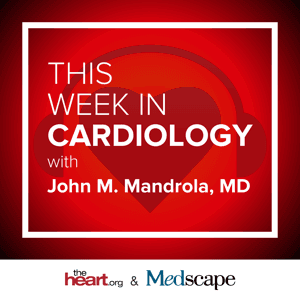In this interview, DJ Lakkireddy, MBBS, FACC and Alison L. Bailey, MD FACC, discuss the Top Electrophysiology Takeaways from 2025 including trials CLOSURE-AF, ALONE-AF, NEMESIS-PFA, and more.
Suggested Materials:
1. Verma A, Birnie DH, Jiang C, et al. Antithrombotic Therapy after Successful Catheter Ablation for Atrial Fibrillation. N Engl J Med. Published online November 8, 2025. doi:10.1056/NEJMoa2509688
2. Landmesser U, Skurk C, Kirchhof P, et al. Catheter-based left atrial appendage CLOSURE in patients with atrial fibrillation at high risk of stroke and bleeding as compared to best medical therapy: Rationale and design of the prospective randomized CLOSURE-AF trial. Am Heart J. Published online September 12, 2025. doi:10.1016/j.ahj.2025.09.005
3. Kim D, Shim J, Choi EK, et al. Long-Term Anticoagulation Discontinuation After Catheter Ablation for Atrial Fibrillation: The ALONE-AF Randomized Clinical Trial. JAMA. 2025;334(14):1246-1254. doi:10.1001/jama.2025.14679
4. Lakkireddy D, Katapadi A, Garg J, et al. NEMESIS-PFA: Investigating Collateral Tissue Injury Associated With Pulsed Field Ablation. JACC Clin Electrophysiol. 2025;11(8):1747-1756. doi:10.1016/j.jacep.2025.04.017
5. Wazni OM, Saliba WI, Nair DG, et al. Left Atrial Appendage Closure after Ablation for Atrial Fibrillation. N Engl J Med. 2025;392(13):1277-1287. doi:10.1056/NEJMoa2408308
Subscribe on Apple Podcasts | Subscribe to ACCEL




































